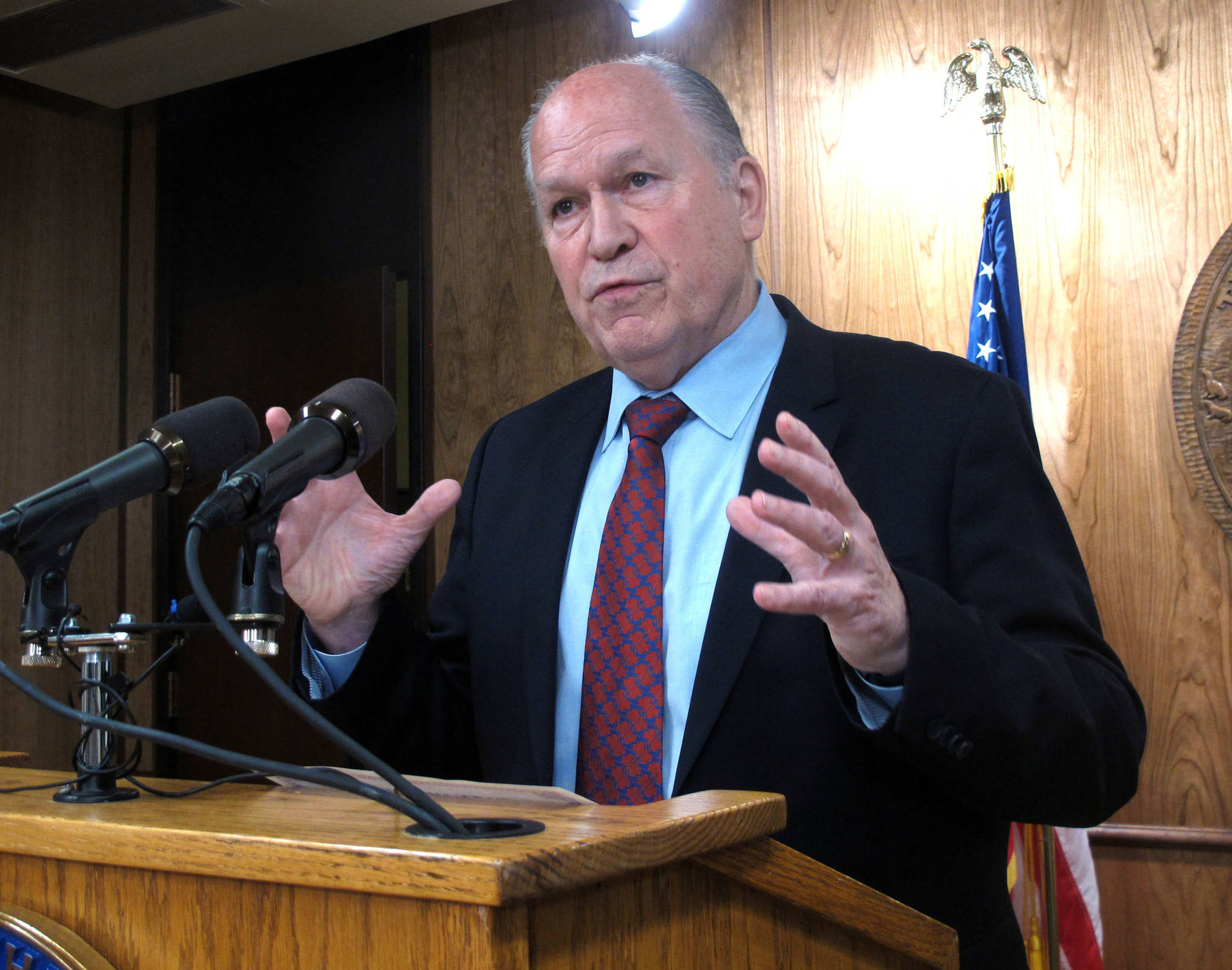JUNEAU — The Alaska Legislature on Thursday convened a special session, called by Gov. Bill Walker, after failing to come to terms on a budget and plan for addressing the state’s multibillion-dollar deficit during an extended regular session.
Here is a look at what has happened so far and what lies ahead in the session scheduled to last up to 30 days.
What has happened so far?
House and Senate leaders early on laid out plans for addressing the deficit that are significantly different. After four months in session, there is little indication that either side is willing to yield on what it sees as the best path forward.
The House and Senate have proposed using earnings from the state’s oil-wealth fund, the Alaska Permanent Fund, to help cover costs but disagree on what else is needed.
What are the plans?
The House majority coalition, composed largely of Democrats, has insisted on a broad-based tax, like an income tax, and broader changes to oil tax and credit policy than the Senate has supported as part of an overall solution.
Meanwhile, the Republican-led Senate, which rejected the House’s income tax bill, has proposed limits on future state spending and cuts to public education and the university system that the House majority opposes.
House coalition members say any plan that relies on permanent fund earnings alone is unacceptable because it wouldn’t be balanced and would hit lower-income Alaskans especially hard.
Both House and Senate permanent fund bills would change how the annual dividend Alaskans receive from the fund is calculated and initially limit its size.
Now what?
Senate Finance Committee Co-chair Lyman Hoffman said work should focus on what lawmakers agree upon first.
On the tax issue, Hoffman’s co-chair, Anna MacKinnon, said that if the House has a different revenue measure in mind, the Senate would be happy to consider it. But she said the Senate is focused for now on a spending cap.
Walker’s special session agenda allows lawmakers to consider increasing an existing tax or establishing a new broad-based tax to generate new revenue for a state that has long relied on heavily volatile oil revenues.
Walker told reporters he’d consider amending the agenda, to add a specific tax proposal, if he felt talks on that topic weren’t being productive.
House Speaker Bryce Edgmon said the tension and ante have been upped now that lawmakers are in special session. The Dillingham Democrat has noted repeatedly that the issues being debated are significant and not easily resolved.
“If we don’t do things right this session it’s going to cost us in the future,” he said.
What else is on the agenda?
It includes the budget, permanent fund legislation, oil tax and credit legislation, a bill addressing opioid prescriptions and one that would increase motor fuels taxes. The opioid legislation was proposed by Walker.
Sen. John Coghill said he was disappointed the agenda did not include a bill that contained what were seen as more substantive changes to criminal justice legislation passed last year. But the North Pole Republican said he understands the need for a narrow focus.
The Legislature did pass what were billed as technical fixes to the law.

